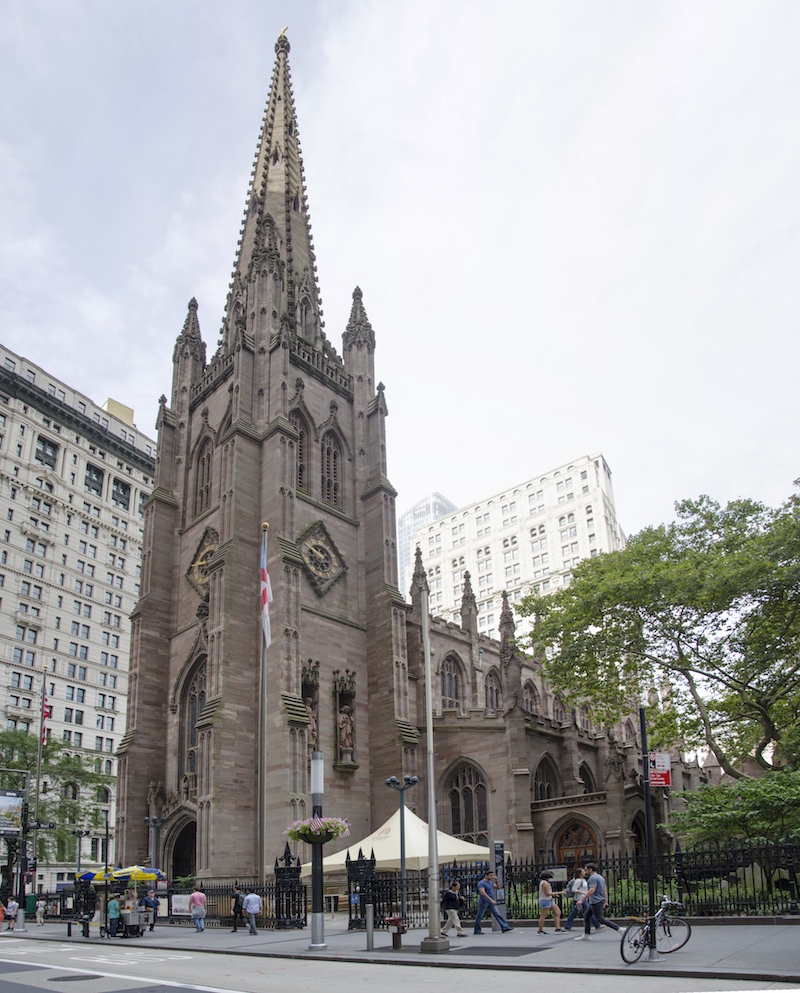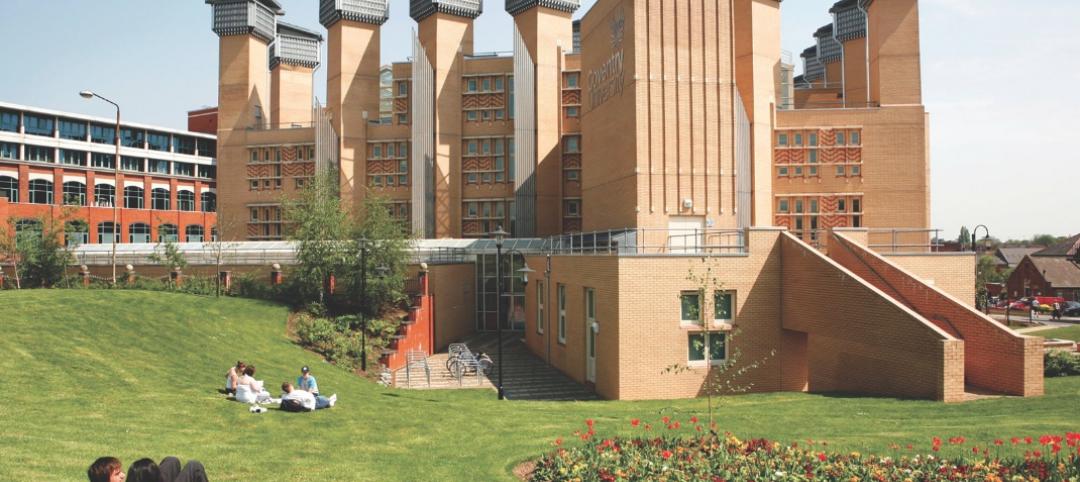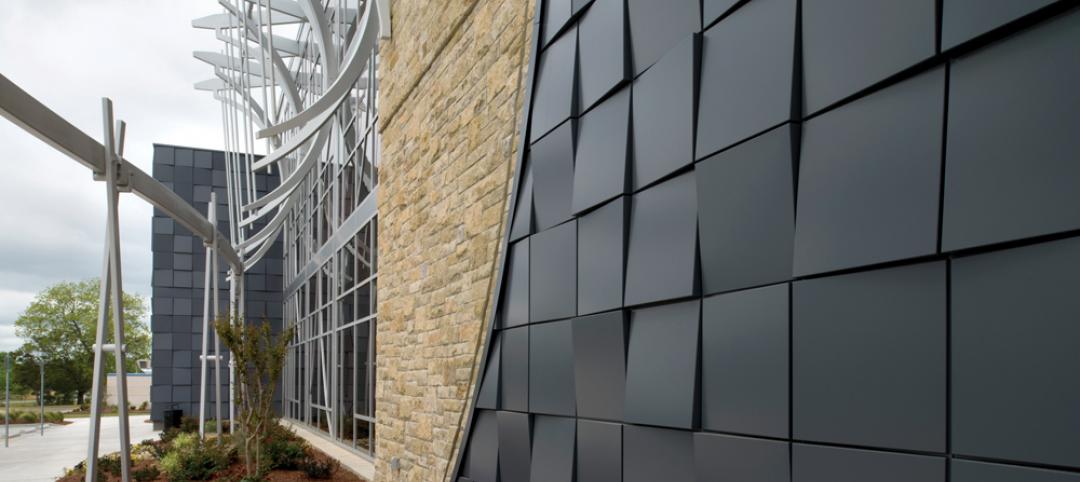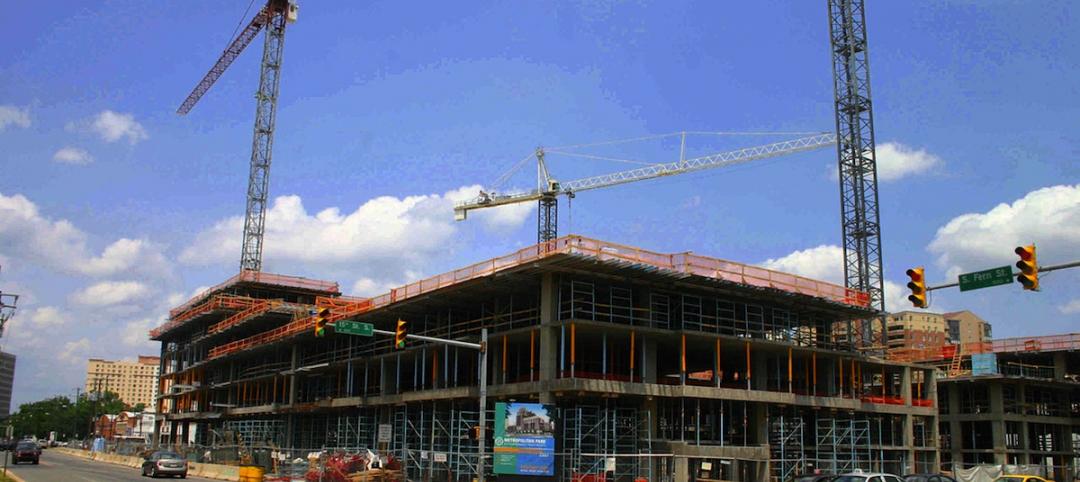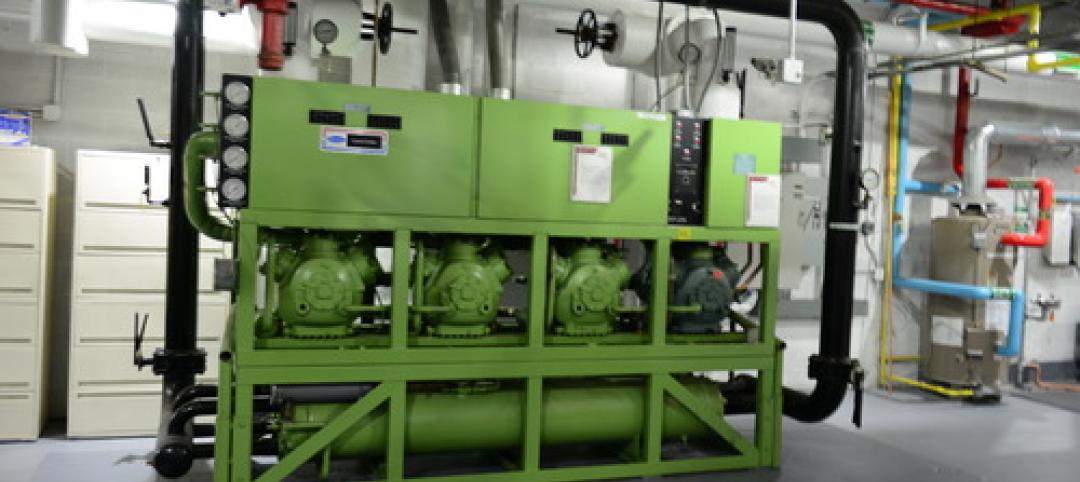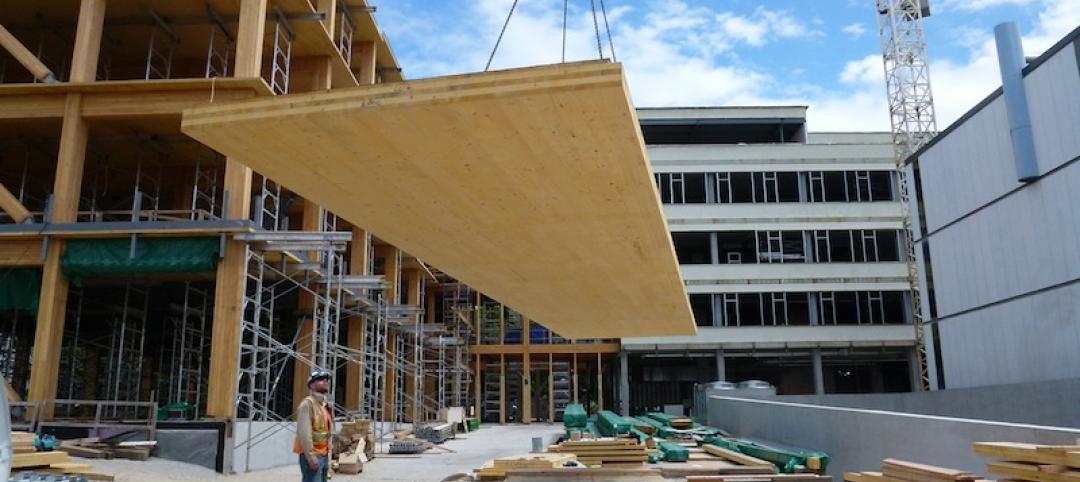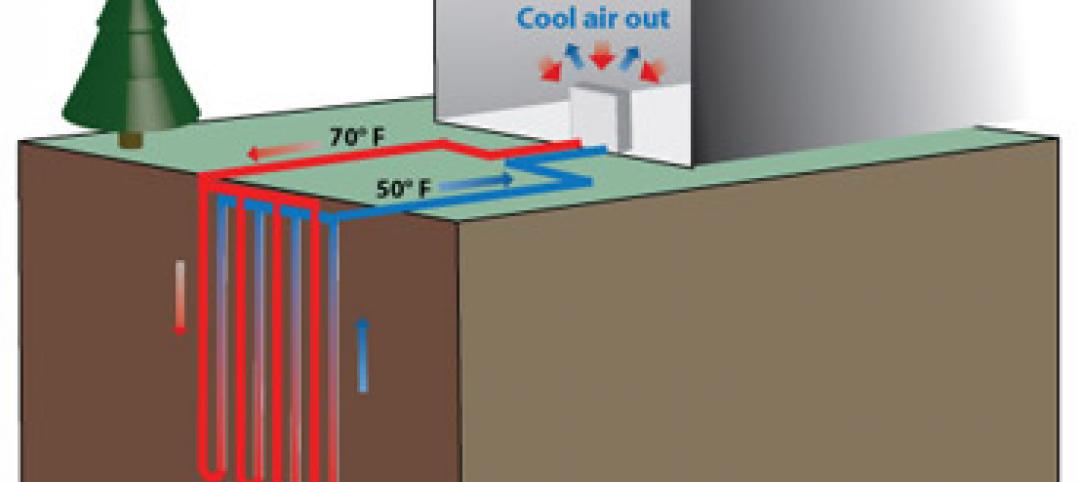Trinity Church Wall Street, which has served the Episcopal community in Lower Manhattan for 321 years, has initiated a $98.6 million “rejuvenation” that will close the building’s nave, the main body of the church, for approximately 20 months.
The architect on this project is Murphy, Burnham and Buttrick. Trinity Church had not identified the engineers or GC on this project at presstime. The rejuvenation will be financed entirely from the church’s endowment, one of the largest of any single religious institution in the country.
The 82,700-sf church is actually the third building from which Trinity Church has operated. The first, built in 1698, was destroyed by fire in 1776. The second, which opened in 1790, was torn down after being weakened by storms in the winter of 1838-39. The current church, whose construction was completed in 1846, at 281 feet stood as the tallest building in the U.S. until 1869.
The current building hasn’t had a significant renovation since 1946. “Underneath the skin, there are a lot of problems,” both structural and mechanical, says Rev. Phillip Jackson, Trinity’s Vicar. He adds that Trinity “is a little dark [inside]; we want to give back its light.”
The rejuvenation will return parts of the church to the original 1846 plan devised by Richard Upjohn, a British-born American architect. Its chancel, near the altar, will be restored to its original size, increasing capacity by 140 seats. The building’s interior walls and ceiling will be painted to reflect Upjohn’s stone design.
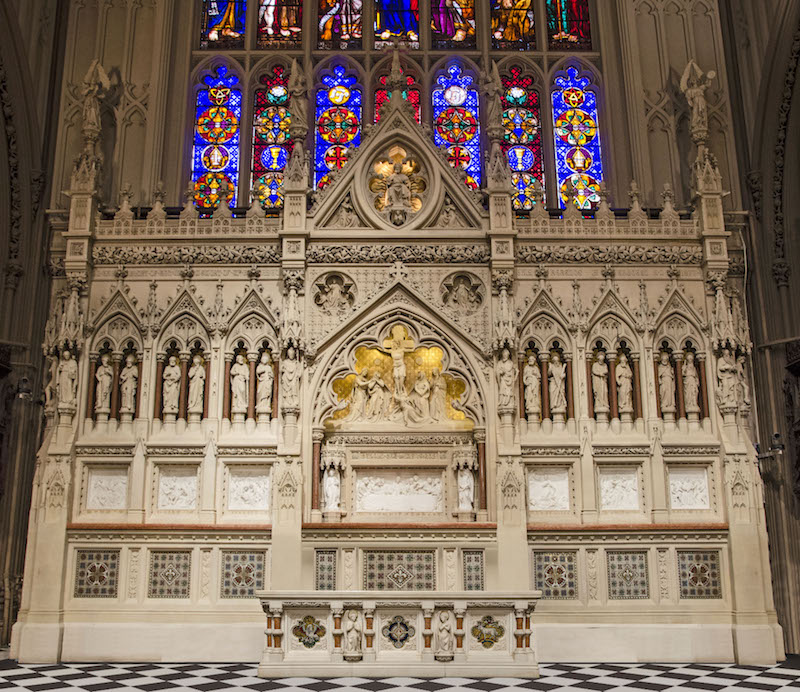
The remodeling will include making the church's altar movable to accommodate different events. The church's stained-glass windows will be repaired or restored. Image: Courtesy of Trinity Church
Other renovations and changes will include:
•Repairing and restoring the church’s stained-glass windows, and redesigning the clerestory windows so they match the church’s interior.
•Adding ramps to the North and South entrances, and modifying the East plaza, which would include removing steps in the Chapel of All Saints chancel, to make the entire church ADA-accessible.
•Separating the altar from its reredos (the ornamental screens behind the altar) and making the altar movable to accommodate different events.
•Installing a new lighting and sound system inside the church, and upgrading its exterior lighting.
•Renovating the choir room with acoustical panels to upgrade the practice and performance space.
•Adding a glass and steel canopy outside the church’s South side to provide processionals with protection from inclement weather.
•Installing gender-neutral bathrooms.
•Redesigned and refurbishing pews for comfort.
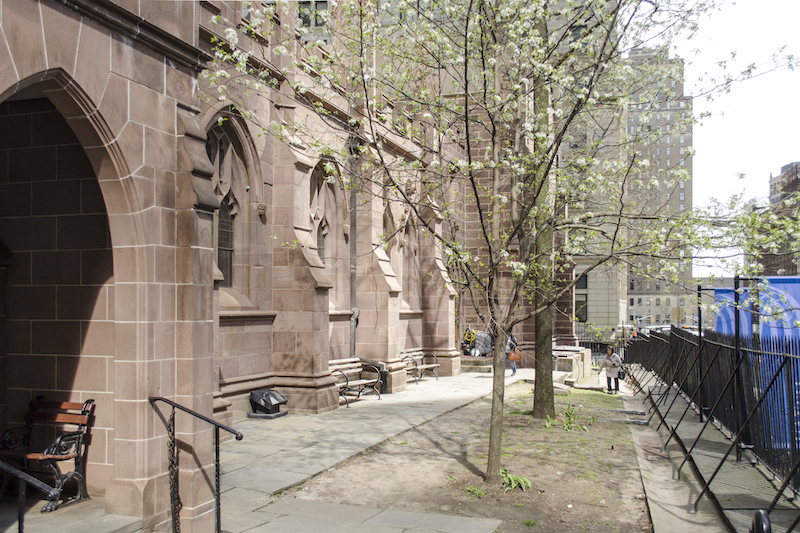
The top image shows what the church's West entrance looks like today. The bottom image shows how steps will be removed, and a plaza created, to make that entrance ADA-accessible. Images: Courtesy of Trinity Church
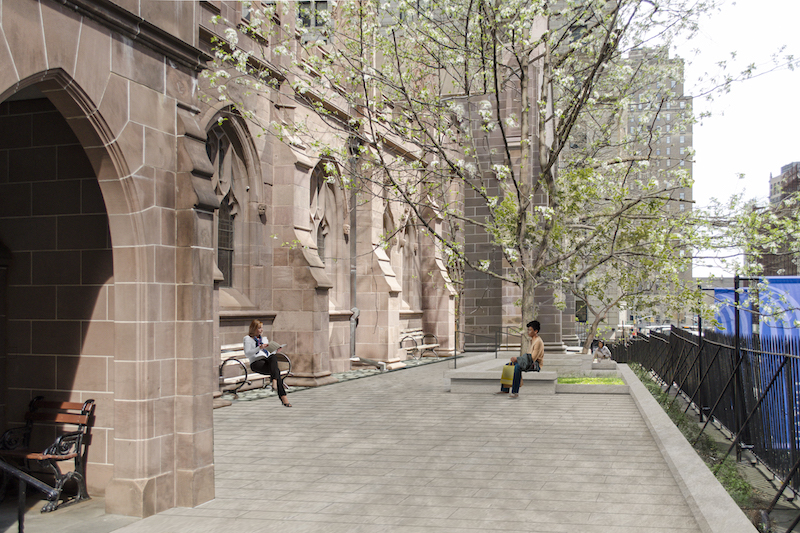
Trinity Church has a rich religious and political history. President George Washington, Alexander Hamilton and John Jay were among the government officials who worshipped there. When terrorists attacked New York City on Sept. 11, 2001, local residents took shelter in the church. Trinity, which is located near Zuccotti Park, also lent some moral support to protesters during the Occupy Wall Street movement in 2011, although declined to allow protesters to use its grounds.
During its renovation, which should be completed by Spring of 2020, Trinity Church will conduct many of its services and other functions from nearby St. Paul’s Chapel, the oldest building in New York, which itself recently underwent a restoration.
Related Stories
| Jan 11, 2014
Getting to net-zero energy with brick masonry construction [AIA course]
When targeting net-zero energy performance, AEC professionals are advised to tackle energy demand first. This AIA course covers brick masonry's role in reducing energy consumption in buildings.
| Dec 20, 2013
Ten spectacular contemporary churches [slideshow]
German building-information provider Emporis compiles a photographic tour of inspirational spaces.
| Dec 13, 2013
Safe and sound: 10 solutions for fire and life safety
From a dual fire-CO detector to an aspiration-sensing fire alarm, BD+C editors present a roundup of new fire and life safety products and technologies.
| Dec 10, 2013
16 great solutions for architects, engineers, and contractors
From a crowd-funded smart shovel to a why-didn’t-someone-do-this-sooner scheme for managing traffic in public restrooms, these ideas are noteworthy for creative problem-solving. Here are some of the most intriguing innovations the BD+C community has brought to our attention this year.
| Nov 27, 2013
Wonder walls: 13 choices for the building envelope
BD+C editors present a roundup of the latest technologies and applications in exterior wall systems, from a tapered metal wall installation in Oklahoma to a textured precast concrete solution in North Carolina.
| Nov 26, 2013
Construction costs rise for 22nd straight month in November
Construction costs in North America rose for the 22nd consecutive month in November as labor costs continued to increase, amid growing industry concern over the tight availability of skilled workers.
| Nov 25, 2013
Building Teams need to help owners avoid 'operational stray'
"Operational stray" occurs when a building’s MEP systems don’t work the way they should. Even the most well-designed and constructed building can stray from perfection—and that can cost the owner a ton in unnecessary utility costs. But help is on the way.
| Nov 19, 2013
Top 10 green building products for 2014
Assa Abloy's power-over-ethernet access-control locks and Schüco's retrofit façade system are among the products to make BuildingGreen Inc.'s annual Top-10 Green Building Products list.
| Nov 13, 2013
Installed capacity of geothermal heat pumps to grow by 150% by 2020, says study
The worldwide installed capacity of GHP systems will reach 127.4 gigawatts-thermal over the next seven years, growth of nearly 150%, according to a recent report from Navigant Research.
| Oct 30, 2013
11 hot BIM/VDC topics for 2013
If you like to geek out on building information modeling and virtual design and construction, you should enjoy this overview of the top BIM/VDC topics.


